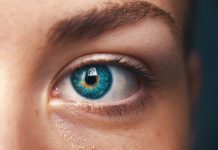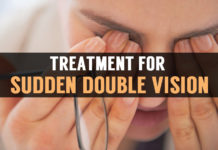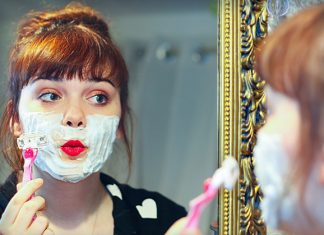People and glasses or spectacles have a love and hate relationship. But whether you like or dislike them, there is no respite if you don’t have the perfect 20/20 vision.
Age is, of course, among the primary reasons for wearing glasses, but that is not always the case. You will often spot cute little toddlers going to their playschool wearing spectacles with coloured frames.
These kids cannot even handle their glasses (which keep sliding off their nose), but as advised by the doctors, they have to wear them.
Here are some tips and information for you to wear or not to wear glasses.
How to know if you need glasses?
So why do people, irrespective of age, have to wear corrective lenses? The simplest explanation is that eyes are precious so, taking care of the glasses are important.
But sometimes, due to an infection, people have to resort to wearing glasses. At other times certain changes in one’s vision make it important to wear them. There is a third condition where people do not show any symptoms at all but still need lenses.
So, if you had been wondering do I need glasses, here are some of the conditions in which an ophthalmologist will give you spectacles:
- Squinting eyes
- Double vision
- Blurred vision
- Headaches
- Absence of clear lines in objects and a hazy appearance
- ‘Aura’ surrounding objects
- Facing difficulty in night driving
- Distorted vision
If you face one or many of these signs, you need glasses. It is imperative to consult a doctor at the earliest.
Eye evaluation?
A visit to the ophthalmologist can be an interesting experience. While taking the eye exam, your doctor will ask you to cover one eye and read alphabets written on a chart. The alphabets on the chart begin from the large to smaller ones.
The doctor will make you wear a pair of spectacles and keep changing the glasses until you reach the perfect combination to read all the lines of letters until the smallest one. The normal vision score is 20/20. A person with a score of 20/200 is considered almost blind.
Different kinds of vision problems
Loss of vision takes place gradually and owing to several reasons. Most people experience the vision change but tend to neglect it in the initial stages. Even if you had a vision score of 20/20, don’t expect it to remain so all your life. There are many reasons responsible for the change in vision score.
Check out the following kinds of vision problems that can make you wear glasses.
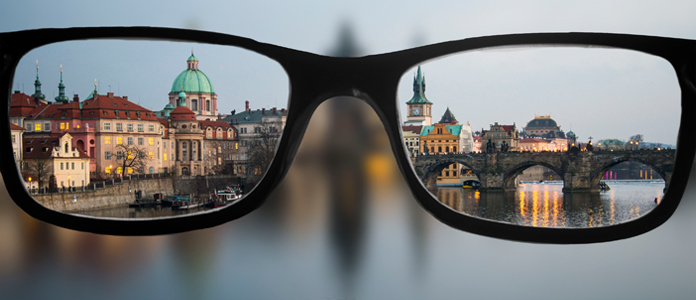
Near-sightedness:
Also known as myopia, it is a condition wherein you can see all the objects near you quite clearly, but the ones far away appear to be blurred. The commonest example of near-sightedness is of children being unable to see the blackboard clearly. This happens if your eyeball is long or the cornea is extremely curved.

Farsightedness:
Also known as hyperopia, farsightedness occurs when objects placed far away can be seen clearly, but those placed nearby cannot be seen properly. People who suffer from this condition have eyeballs that are not shaped normally or too short.

Astigmatism:
People who have astigmatism usually have slightly distorted vision. In such cases, the retina does not receive light evenly from all sides. Both children and adults can have astigmatism. Most people suffer from mild forms of astigmatism, but if you have a major streak of this condition, glasses are a must to correct it.
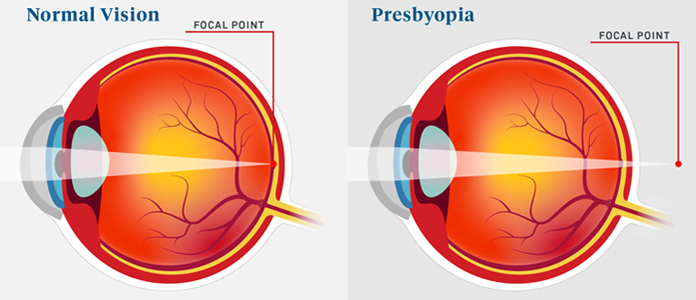
Presbyopia:
This condition begins when you reach between 38 and 42 years of age. It happens because, with age, the eye loses its flexibility and cannot focus equally on objects nearby. So, as you age, reading glasses or bifocals become necessary.
Conclusion:
Eyes are precious organs, and you should take proper care of them. Instead of ignoring the possible eye problems, make it a habit to get your eyes checked by the doctor.
Sometimes, even if you are not facing any vision problem, pay a visit to the doctor and get your peepers checked. Additionally, to keep your eyes safe and healthy, try following these measures:
- Eating the right amount of nutrients like Vitamin E, Vitamin C, zinc, Omega-3 fatty acids, and lutein helps in keeping at bay cataract and macular degeneration.
- Quit smoking to prevent the optical nerve from getting damaged.
- Wear sunglasses protects the eyes from the ultraviolet rays of the sun.
- Do not stare at the computer for a long time. If you have to work for longer hours speak to the doctor about computer glasses. You should also use the anti-glare screen on the computer. Take a break from work every 15mins or so.


